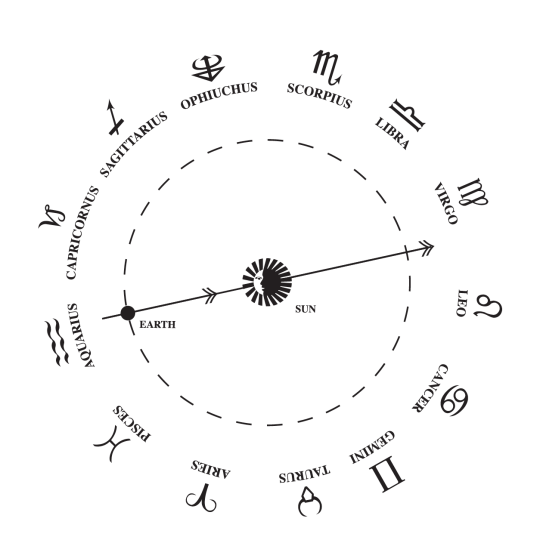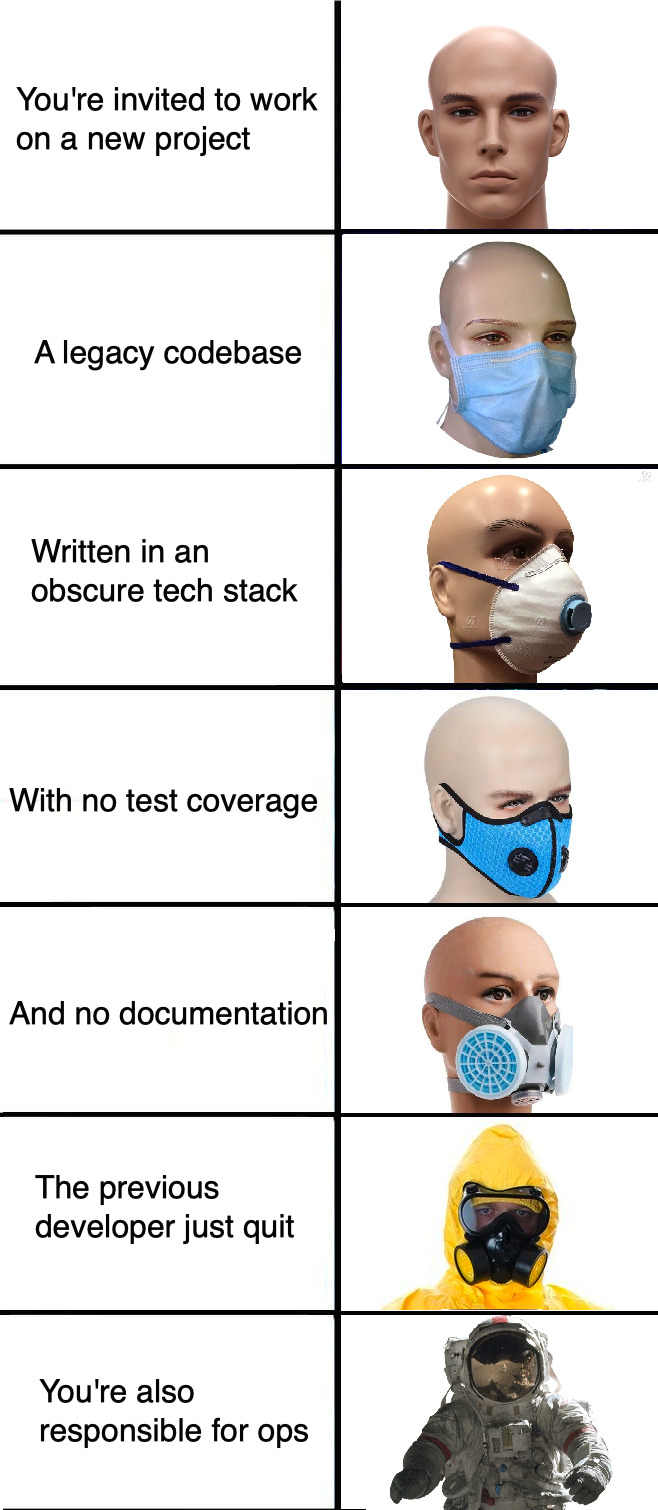Link
Hope everyone’s having a productive time while quarantining. Don’t forget to move around a little bit, maybe even dance?
0 notes
Text
NPM was purchased by Github. Considering how Microsoft handled the Github acquisition, I'm hopeful that this will be a good step. Hopeful.
Next Phase Montage
tl;dr – Good news!
npm, Inc., is being purchased by GitHub.
The public registry remains public, free, and as available as ever.
npm as you know it continues, and in fact, there is good reason to believe that it’ll only get better.
I’m still going to be working on npm (but with the luxury of more resources and less stress).
I’m really excited about the stuff we’re going to do.
It is customary for a founder, in the closing chapter of their startup, to ruminate in a blog post about their incredible journey1. When we founded npm, Inc., I knew that I was signing up for a post like this someday. I’m extremely thankful that this is the one I get to write2.
history and origin
Back in 2009, after too long without a vacation, I quit my job, in hopes of discovering what happens when I untether my creativity.
What happened is I wrote a package manager.
I created npm with the goal of sharing modules in a tiny group of nerdy weirdos who’d decided to write web servers in JavaScript. From that niche beginning, npm grew, slowly but surely, the background project I’d greedily steal away time for.
At the end of 2013, npm hit a rough spot and we had to make a decision. This was the first big bookmark in the npm story, when the project could no longer survive on donations. We made some slide decks and raised an amount of money that seemed enormous at the time, but inevitably got spent really fast.
the part where i talk about startups
Running a company is hard. It is grueling, unglamorous work.
I don’t want to make it sound completely terrible. There are definitely a few awesome parts. But once is enough for me.
Throughout this journey, our north star has been the mission that we founded this company with: reduce friction in JavaScript software development.
I have a set of goals that I wrote down back then, and have shared openly with the team. They haven’t changed much.
Keep the npm registry running forever (not only for the life of the company).
Be a company that we can all enjoy working at, and do the best work of our careers up until now.
Get a big enough exit that I can quit my job and see what comes out of me a second time.
Share the rewards equitably with the people who got npm to where it is.
There are few unmitigated successes or failures in the real world. But this is a win, and a good one, for me and the team and the entire JavaScript community.
We have made tremendous progress on (1), and that’s the thing I’m happiest about in this. As far as (2), there’s been ups and downs, to say the least, but the bright spots outshine the dark. I’ve lost some valued friendships in the process, but made a few as well. On (3), well, I’m still working a jobby job, but I always knew that was a long shot, and “make npm a better package manager” is a job I enjoy. And as for (4), I’m proud of the deals that we’ve been able to negotiate for the team.
It’s not a kajillion billion dollar 10x startup cinderella story, and we’ve taken our hits, but in the end we’ve done right by our community, team, and careers, and I’m extremely proud of what we’ve achieved.
the part where i talk about the company buying us
One of the questions founders get asked a lot is “what might your exit look like?” I always mentioned the big tech companies as possibilities, and GitHub as a sort of “wishful thinking” option.
I’ve been following GitHub’s trajectory closely since they came to Yahoo! to give a talk about git and social coding way back in 20093. It’s been a huge part of my life ever since I dove head-first into open source as a lifestyle choice.
When I saw the GitHub Packages beta announcement and demo at GitHub HQ in San Francisco, I remember turning to Shanku Niyogi and clumsily blurting out, “Why aren’t you trying to buy us?”
It seemed so maddeningly… obvious. Forget about whose logo is on which webpage, just… if you’re going to do this thing, do it right, ffs. This clearly needs to be integrated with the actual registry in a very deep way. “I mean… You see that, right?” (I think he probably did. And if he didn’t, then props to him for taking my reaction as flattery or a good idea, rather than condescension.)
What I didn’t really expect at the beginning of the acquisition process was how much I’d genuinely like everyone I met at GitHub, starting with my initial conversations with Nat, as well as all the people on the team he’s built. As we dug into the technical and strategic plans for how npm would fit into the vision of GitHub moving forward, it became clear that this isn’t just a good option for the JavaScript community – it’s significantly better than what npm, Inc., can provide on its own.
There are not many companies that can claim to have the kind of fanatical commitment to open source that GitHub does. In the track record of Nat and the team he’s assembled, there’s really something special here that I’m thrilled to be a part of.
I’ve said countless times before that I wouldn’t let the registry go someplace that won’t take care of it. (See goal (1) above. I’ve sacrificed years of my life and put a strain on many personal and professional relationships in pursuit of that goal.)
As GitHub has branched out into other aspects of the end-to-end developer community experience, it’s natural to see how the JavaScript package management process fits into that story. It’s not a loss leader or an experimental add-on or a way to quickly hire a team. Rather, the npm registry is a significant and concrete strategic asset serving GitHub’s mission of eliminating transaction costs in software development.
That’s important.
the part about what comes next
Today, npm serves over 1.3 million packages to roughly 12 million developers, who download these things 75 billion times a month, and all of this is growing at a rate that ensures these massive numbers will seem small in a few years.
Our commitment to that community is to keep the npm registry free for open source development for the foreseeable future, and continue to improve the npm CLI. At GitHub, npm will have the added support and backing of one of the world’s largest companies, behind the world’s largest community of developers.
There are some awesome opportunities for improvement in the npm experience, to meaningfully improve life for JS devs in countless large and small ways. We’ll be making things more reliable, convenient, and connected for everyone across our vast interdependent JavaScript ecosystem.
For six years, in the grind of a startup, we’ve had dreams too big to dare hope for. This next chapter is a chance to realize those dreams.
This is the end of “npm, Inc.”, the Delaware C Corp. But it’s an exciting upgrade for npm.
[1]: Reference joke Our Incredible Journey
[2]: It’s also worth noting that GitHub allowed such a long, nuanced, and candid announcement as this one, and didn’t push for a watered down corporate version. Cultural alignment is a good sign.
[3]: Check out the date on the post for that talk. Then note the date on this commit. It’s like some kind of cryptic message from the past, and it’s weirding me out, tbh.
66 notes
·
View notes
Text
Constellations and the Calendar
Did you recently hear that NASA changed the zodiac signs? Nope, we definitely didn’t…
…Here at NASA, we study astronomy, not astrology. We didn’t change any zodiac signs, we just did the math. Here are the details:
First Things First: Astrology is NOT Astronomy…
Astronomy is the scientific study of everything in outer space. Astronomers and other scientists know that stars many light years away have no effect on the ordinary activities of humans on Earth.
Astrology is something else. It’s not science. No one has shown that astrology can be used to predict the future or describe what people are like based on their birth dates.

Some curious symbols ring the outside of the Star Finder. These symbols stand for some of the constellations in the zodiac. What is the zodiac and what is special about these constellations?

Imagine a straight line drawn from Earth though the sun and out into space way beyond our solar system where the stars are. Then, picture Earth following its orbit around the sun. This imaginary line would rotate, pointing to different stars throughout one complete trip around the sun – or, one year. All the stars that lie close to the imaginary flat disk swept out by this imaginary line are said to be in the zodiac.

The constellations in the zodiac are simply the constellations that this imaginary straight line points to in its year-long journey.
What are Constellations?
A constellation is group of stars like a dot-to-dot puzzle. If you join the dots—stars, that is—and use lots of imagination, the picture would look like an object, animal, or person. For example, Orion is a group of stars that the Greeks thought looked like a giant hunter with a sword attached to his belt. Other than making a pattern in Earth’s sky, these stars may not be related at all.

Even the closest star is almost unimaginably far away. Because they are so far away, the shapes and positions of the constellations in Earth’s sky change very, very slowly. During one human lifetime, they change hardly at all.
A Long History of Looking to the Stars
The Babylonians lived over 3,000 years ago. They divided the zodiac into 12 equal parts – like cutting a pizza into 12 equal slices. They picked 12 constellations in the zodiac, one for each of the 12 “slices.” So, as Earth orbits the sun, the sun would appear to pass through each of the 12 parts of the zodiac. Since the Babylonians already had a 12-month calendar (based on the phases of the moon), each month got a slice of the zodiac all to itself.

But even according to the Babylonians’ own ancient stories, there were 13 constellations in the zodiac. So they picked one, Ophiuchus, to leave out. Even then, some of the chosen 12 didn’t fit neatly into their assigned slice of the pie and crossed over into the next one.

When the Babylonians first invented the 12 signs of zodiac, a birthday between about July 23 and August 22 meant being born under the constellation Leo. Now, 3,000 years later, the sky has shifted because Earth’s axis (North Pole) doesn’t point in quite the same direction.

The constellations are different sizes and shapes, so the sun spends different lengths of time lined up with each one. The line from Earth through the sun points to Virgo for 45 days, but it points to Scorpius for only 7 days. To make a tidy match with their 12-month calendar, the Babylonians ignored the fact that the sun actually moves through 13 constellations, not 12. Then they assigned each of those 12 constellations equal amounts of time.
So, we didn’t change any zodiac signs…we just did the math.
Make sure to follow us on Tumblr for your regular dose of space: http://nasa.tumblr.com
8K notes
·
View notes
Text
How to get rich in tech, guaranteed.
Today’s NYT article on how employees sometimes lose out is a great read. Employees who like that, might also like Hunter’s article from last week on (not) getting rich at startups. This is the follow up I intended to write for the latter.
I talk to people looking for their next gig on a regular basis. It’s fun to match awesome people who don’t want to found companies up with companies who need awesome people. One question I get asked over and over again in various forms is, do you think I’ll get rich from startup X?
My first piece of advice for startup job seekers is that equity, all things equal, you can’t pick ‘em. On a risk-adjusted basis, startups are likely to be about the same. If there is information that a company has significantly de-risked, it will be priced in. Despite the market often being very wrong, you are unlikely to outsmart it.
If you want to get rich, your best bet on a risk-adjusted basis is to join a profitable and growing public company. Google for short. Make $200-500k all-in a year, work hard and move up a level every 3-5 years, sell options as they vest (in case you joined Enron), and retire at 60, rich. This plan works every time.
Beyond the sub-market salary you’ll receive for joining a startup, there are no financial guarantees. Your equity is probably worthless. The whole damn thing might fall apart any time. The hours are long. A lot of shit won’t work right. Etc.
But, as far as I know, startups are the only way to get 20 years of experience in five. The reason to join a startup is because you are awesome, you’re willing to work hard, and you don’t want to wait 20 years to be making decisions that impact the business.
And if you go in with this mentality, even when startups fail, you succeed. If you put five years into building a company and team, you will end up with a great network of talented and motivated people, lots of first-hand experience, and often some management experience as well.
Worst case, your next step could be going into Google at the VP level it would’ve taken you 15 years to get to joining out of college to “inject some startup DNA,” and catch up on salary within a few years. Unless this internet thing is a fad, that job will always be there for you.
But for all that is good and holy, don’t join a startup for the fucking money.
Sundry advice on picking a startup:
Be clear on what you want. Do you want to join pre product-market fit, or post? Do you need a salary, if so, how much? Do you care about vertical or role? Location? Travel? Etc. Most people that end up in the wrong job didn’t think through what their ideal job was before looking.
Run a process. Most people fail at this. Startups are interviewing you, but you’re interviewing them too. Write down your criteria. Look at 200 startups, contact 50, do first interviews with 20, move forward with 5, pick between 2-3 good options. If you’re passive, or only talk to a few companies, you’ll be choosing between limited options. You can get 200 plausible startups in a couple hours.
Focus on good people/culture. Above all else, my observation is that when you find good people (high-integrity, smart, hard working, etc) and a compatible culture, you end up happy, even if the company fails. When you ignore suboptimal people fit because you think the product is sexy or you’ll make money, you end up sad.
Accept fair comp. Many people are unrealistic on comp. They want an early-stage experience with Google salaries. It doesn’t work that way, and startups often suck at explaining that. Talk openly with startups about what they can pay you, what they’ve raised, what your needs are, and what milestones will lead to higher salary. Keep in mind, you might be the first person to take a salary and the founders might have been working for two years. Sure, it’s a 50% haircut for you, but for them it’s a big chunk of their first round.
Expect to earn it. Some startups will hire a dev and call them CTO. That doesn’t make them a CTO. If you want to be a CXO, say so up front, but expect to earn it. Entering a startup is a lateral move with unlimited upside. Tell the startup where you want to be, and set milestones that give you what you want that make the company successful. Now you’re a CXO.
Discount the vertical. With a few role exceptions, what you’re actually making isn’t that important. Assuming the company is making something people want and you’re delivering a ton of value, most people can be as happy making enterprise cloud infrastructure as social networking tools. Business development is business development. Do it with/for people who do not suck.
Understand the basics of the business. You shouldn’t try to become an expert, but you can ask some basic questions. What is the valuation of the company, and what’s the valuation for your purposes? How much has the company raised to date? How much money does the company have in the bank, and what is the net burn rate? What milestones does the company need to hit to get to the next round?
This is good to know so you can roughly assess the business. But it’s also a great way to understand how you fit in. Can you help with the core problems the company needs to solve?
Bias towards transparency. Companies can’t be expected to share every single detail with employees, especially potential hires. But, in general bias towards companies that give employees info to make informed decisions You should, for example, know what percent of the company you own. Trust is a two way street, and if the company lies to it’s employees, it’s hard to maintain that trust. Life is too short to watch your back inside the building.
264 notes
·
View notes
Photo

Turning what is traditionally a solitary process into an almost peep show of geekiness beyond what most in the mainstream would care to stomach. Watching someone code is quickly becoming something I want to do as time goes by.
I started streaming on LiveCoding.tv and the reception has been really positive. I enjoy their community a lot. Attempts at streaming on twitch have been semi-successful as well. I feel that live streaming code and the development cycle as a whole is a well deserved role in the educational process - with code collaboration and best practice reinforcement. Plus, it’s fun to see what IDE’s everyone uses. There’s something about watching people write in languages that I’m unfamiliar with and what type of projects come from their work as apart of their “code diversity.”
There can be some really entertaining streamers, too. The ones who stand out always tend to be really good and know exactly what they’re doing and in turn, very confident of their on-air presence. At the moment, I feel I have a lot of improvements to make in my approach. When I review my streams I seem almost in disarray and confusion. Maybe that says something about my coding or maybe I just code differently when I know I’m being watched. Either way, I have a good feeling for the future of this community.
#streaming#code#web development#web design#websites#geek#geeky#programming#community#online#internet
6 notes
·
View notes
Photo

I'll pass.
5 notes
·
View notes

















